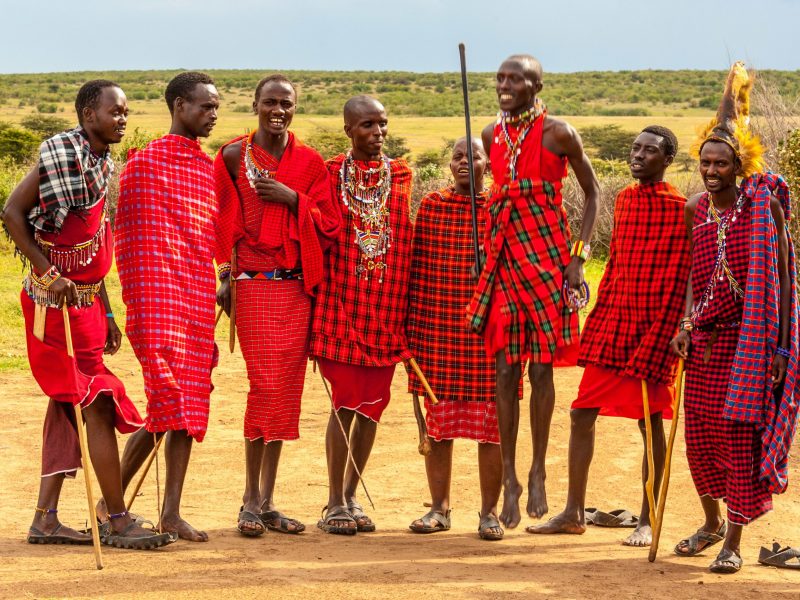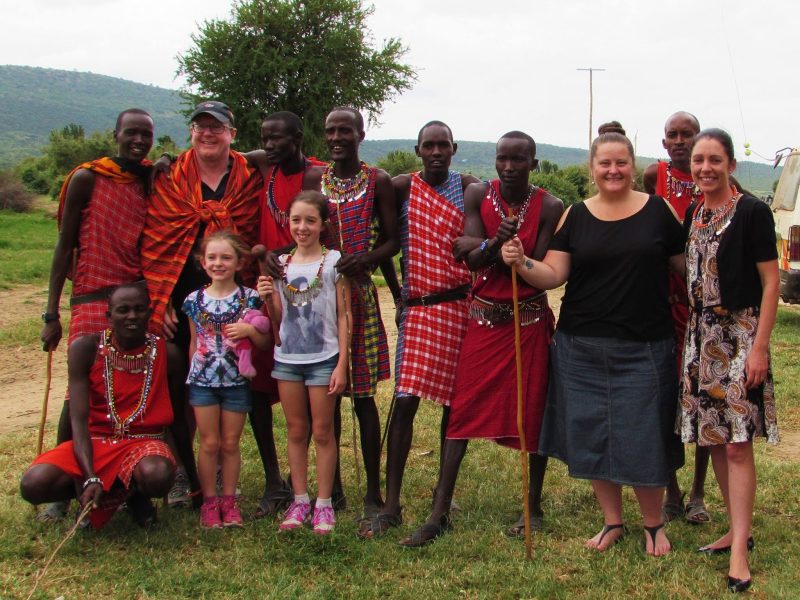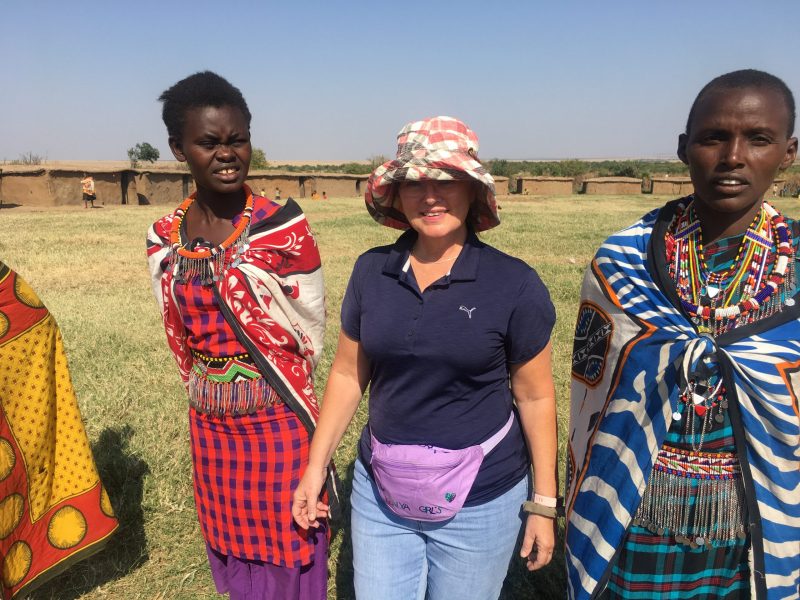Tanzania Cultural Tours – THE 30 BEST Tanzania Cultural Tours (Updated 2024)
THE 30 BEST Tanzania Cultural Tours (Updated 2024) with Reviews, Photos, and Videos. At Deks Tours, we firmly believe that Tanzania Cultural Tours showcase the country’s immense cultural diversity, which stands as one of its greatest strengths. Engaging with people whose beliefs and values differ significantly from your own during these tours offers a transformative experience, providing new insights and perspectives that influence your perceptions of them, yourself, and the broader world. This enhanced depth of understanding fosters new horizons, possibilities, and flexibility in shaping your future life choices.
Embarking on Africa-bound journeys to explore its wildlife is a common pursuit, but delving into the lives of its people through Tanzania Cultural Tours becomes an invaluable and sustainable aspect. This is particularly evident when touring the tribal communities of Tanzania, where over 120 distinct ethnic groups, including Nilotic herders from Sudan, nomads, Kushite herders from Ethiopia, Khoisan hunter-gatherers from the Kalahari, Bantu metalworkers from West Africa, Arabs, Indians, and Anglo-Saxon immigrants, contribute to the rich tapestry of Tanzanian culture.
These ethnic groups, displaced, conquered, or assimilated over thousands of years, have collectively shaped the present Tanzanian population. Each group brought with them unique traditional religions, social practices, rituals, customs, arts, music, and dance. Tanzania Cultural Tours offer a fascinating exploration of this mosaic of cultures.
30 Best Cultural Tours in Tanzania (with Reviews, Photos, and Videos)
5 Days Best of Tanzania Adventure safari
This 5 Days Best of Tanzania Adventure safari pack is meant to indulge travelers and offer an exclusive lifetime adventure in Tanzania’s diverse wildlife. On this…
7 Days Adventure Tanzania Wildlife Safari
This 7 Days Wildlife Exclusive Adventure Tanzania Safari, Great Wildlife Migration Tanzania, Tanzania Wildlife Adventure Safari is a well-customized safari package.
8 Days Tanzania Cultural Tour & Wildlife
This 8 Days Tanzania Cultural Tour & Wildlife Adventure Experience is carefully tailored for nature and wildlife adventure lovers, being truly in the wild and enjoy.
The 30 Best East Africa Combined Safari Tour Holidays – Our Top Picks
6-11 Days Multi-Country Trips
- 6 Days Uganda Kenya Tour
- 7 Days Kenya Family Safari
- 7 Days Kenya Holiday
- 8 Days Best Kenya Safari
- 9 Days Kenya Exclusive Luxury Safari
- 10 Days Kenya Safari
- 7 Days Rwanda Uganda Tour
- 8 Days Kenya Uganda Luxury Safari
- 8 Days Kenya Uganda Tour
- 9 Days Kenya Uganda Safari
- 10 Days Rwanda Kenya Tanzania Safari
- 10 Days Uganda Kenya Tanzania Safari
- 10 Days Kenya Uganda Safari
11-23 Days Multi-Country Trips
- 11 Days Uganda Kenya Zanzibar Safari
- 11 Days Kenya Uganda Safari
- 11 Days Kenya Uganda Rwanda Safari
- 12 Day Kenya Uganda Rwanda Safari
- 13 Days Uganda Kenya Tanzania Safari
- 14 Days Rwanda Tanzania Safari
- 14 Days Across Africa Safari
- 15 Days Kenya Rwanda Tour
- 16 Days Kenya Uganda Safari
- 4 Days Maasai Mara
- 5 Days Safari to Kenya
- 6 Days Best Kenya Safari
- 7 Days Best Kenya Tour
Tribal Communities of Tanzania Cultural Tours
The tribal communities of Tanzania, driven by a desire to preserve and protect their identities, aim to pass down the values held for generations to their children. A Tanzania Cultural Tours experience provides diverse levels of engagement across communities. This ranges from visiting meticulously restored historic sites and settlements to residing in locations designed to immerse visitors in tribal and colonial fantasies. Alternatively, participants can engage in real-time projects where skills and ethnic handicrafts are recycled within the framework of our everyday world.
Deks Tours facilitates spiritual and life-affirming encounters during an awakening tour of East Africa, fostering mutually uplifting experiences with local communities. By planning your journey with Deks Tours, you can ensure the best possible outcome in meeting different worlds while maintaining a culturally aware interaction and authenticity. Collaborating with various local tribes, we aim to create a sensitive, respectful, and rewarding ethnic Tanzanian cultural holiday experience tailored to your desired level of engagement. Venture beyond your comfort zone with Deks Tours and return home with a newfound appreciation for the vast world.
Learn about the different tribes on Tanzania Cultural Tours – Deks Tours
Maasai Tribe
According to oral tradition, the Maasai, a captivating community featured in Tanzania Cultural Tours, trace their roots to a fusion of North Africans and the Nilotic tribe. Originating in the northern part of Lake Turkana in Kenya, they abandoned this region in the XV century. More than 200 years ago, the Maasai migrated south into present-day Tanzania, driving out other tribes to claim lush pastures for their livestock. In a society where warriors held the highest status and their religion, claiming all cattle as God’s gift, led them to annex any cows they encountered. Presently, around one million Maasai proudly inhabit their homelands in Tanzania and Kenya.
However, much of their tribal lands have been incorporated into national parks, with promises of cultural security and public welfare on surrounding reservations that haven’t always been fulfilled. Adapting to these changes, some Maasai have embraced the Tanzanian tourism industry, actively participating in Tanzania Cultural Tours as guides, wardens, staff, and managers of ecotourism centers. In doing so, they play a crucial role in wildlife conservation, attracting clientele eager to experience the unique charm of Maasai culture.
Do Maasai People Own Land
Some Maasai individuals own land, camps, and shelters, while others initiate self-help projects to offer food, furniture, curios, and crafts in exchange for support in education, health, and community development. In presenting their cultural heritage, the Maasai community views it as a valuable asset for tours in Tanzania. This cultural exchange can manifest as ethnic entertainment, featuring popular touristic performances of Maasai warriors adorned in red, engaging in energetic activities such as jumping, drumming, singing, and dancing.
Alternatively, it may take the form of a traveling concert party or a heartfelt community project, linking the past, present, and future on an authentic stage where real people share their stories. Deks Tours consistently strives to deliver this ultimate experience during Tanzania Cultural Tours, ensuring a deep and meaningful engagement with the Maasai community.
Tribe of Hadzabe – Cultural Tours in Tanzania Adventures
The Hadzabe, featured in Tanzania Cultural Tours, stand as the original Bushmen of Tanzania, communicating with a Khoisan click language. These primitive hunter-gatherers, who have lived in the caves of Lake Eyasi Valley for over 10,000 years, offer a unique perspective on harmonious coexistence with nature. Despite their historical significance, the Hadzabe community now numbers just under 1000 individuals. The intrusion of the neighboring Datoga tribe, coupled with the influence of the national government, climate change, tourism, and commercial hunting, has gradually eroded their environment and traditional way of life. However, their isolation has shielded them from various modern diseases.
Amidst the challenges they face, the Hadzabe typically encounter diseases such as malaria and yellow fever from mosquitoes, or sleeping sickness from tsetse flies. Despite being both a source of pride and a poignant aspect for a modern nation, as the Hadzabe community struggles on the brink of extinction, their chosen way of life has garnered respect. In an intriguing twist, they hold the distinction of being the sole people on Earth permitted to hunt with bow and arrow, a practice that adds a distinctive cultural dimension to Tanzania Cultural Tours.
Lake Eyasi area
Living without a safety net, the Hadzabe, an intriguing community featured in Tanzania Cultural Tours, gather their daily sustenance directly from the environment. Devoid of religious beliefs, notions of life after death, and a concept of time beyond the moon’s phases, they exist in collaborative groups without formal social rules. In their unique lifestyle, men engage in hunting for bushmeat, while women forage for fruits, tubers, and other wild foods. As part of Tanzania Cultural Tours, participants have the opportunity to experience the Hadza way of life firsthand, including the chance to sleep in an organic mini-dome dwelling crafted from natural branches, while some may opt for dens or huddle around a campfire in a head-to-toe arrangement. Life for the Hadza is transient, emphasizing the fleeting nature of existence.
The Hadza’s daily routines, where hunting half-naked baboons or dik-diks with bow and arrow is a way of life, offer a distinctive perspective. Tanzania Cultural Tours provide a platform to appreciate the Hadza lifestyle without necessarily engaging in these activities. The experience is an opportunity for a cultural safari in Lake Eyasi that encourages participants to embrace the concept of “living in the now.” This immersive encounter fosters feelings of calm, focus, and courage, offering a unique perspective on life through the lens of the Hadza community.
Datoga Tribe – Cultural Tours in Tanzania Adventures
Similar to the Maasai, the Datoga, featured in Tanzania Cultural Tours, once thrived as nomadic pastoralists but have transitioned into small-scale farming. They cultivate beans, corn, and millet to sustain the rearing of sheep, goats, cattle, and chickens. Like the Maasai, they are also reliant on permanent water sources, making them vulnerable to the impact of increasing drought.
As a Nilotic people, the Datoga’s distinctive patched leather robes seamlessly blend into the landscape. Adorned with pearl and brass necklaces, bracelets, and tattooed eye circles, they present a unique cultural facet on Tanzania Cultural Tours. Polygamous and governed by a council of elders, the Datoga exhibit an assertive nature that sometimes negatively affects neighboring communities, including the Hadzabe and Iraqis. Despite their reputation, akin to the Maasai, as warriors, they warmly welcome guests on an East African safari, sharing their cultural traditions.
Where do the Datoga People Reside?
Residing in mud huts within marked cattle enclosures, they utilize all parts of their animals, breeding and killing only what is necessary and hesitating to engage in extensive trade. Paradoxically, their friendly demeanor during Tanzania Cultural Tours contrasts with their hostile attitude towards the Hadzabe, often restricting Hadza women’s access to waterholes until Datoga cattle have finished drinking.
Claiming to be among the oldest people in Tanzania, with a cultural heritage dating back 10,000 years, the Datoga migrated from Ethiopia approximately 3,000 years ago to settle around Lake Manyara and Eyasi. Opposing development and education, they face challenges such as high infant mortality rates and are sometimes perceived by other tribes as primitive, frowned upon, and disenfranchised. With less than 7% of them speaking the local language, Kiswahili, the Datoga’s unique cultural perspective adds depth to Tanzania Cultural Tours.
Sukuma tribe – Cultural Tours in Tanzania Adventures
The northern Sukuma, a significant cultural group explored in Tanzania Cultural Tours, embrace both pastoralist and farming traditions. Originating as a Bantu people from what is now Uganda, the Sukuma spread across north-western Tanzania, extending into the Congo, Burundi, and Rwanda. Now exceeding 8 million in number, they stand as the largest ethnic group in Tanzania, constituting one-sixth of the total population. While many have assimilated into urban settings, adopting Western clothing and culture, those in rural areas still preserve their heritage through traditional furs, brightly colored kanga fabrics, and kitenge dresses.
The diverse linguistic landscape includes various Bantu and Kiswahili dialects, reflecting the richness of Sukuma culture on Tanzania Cultural Tours. Within the Sukuma community, there is a diverse range of religious beliefs, with some individuals embracing Christianity or Islam, while others adhere to various traditional practices. Worshiping and making sacrifices for ancestors to ensure family health and prosperity are common elements in their spirituality.
Vibrancy of Sukuma Traditions
Despite the decline of traditional culture, the annual dance competitions in villages from May to September showcase the enduring vibrancy of Sukuma traditions. In Mwanza, the Bujora Cultural Center offers a glimpse into Sukuma folk heritage. Elders within the Sukuma community retain a belief in ancestral communication and future prediction, a power traditionally held by clan chiefs and other sages with distinctive ritual scars on their arms.
While both men and women now engage in diverse professions in cities and industries, rural women maintain their roles as housewives, balancing traditional responsibilities with modern opportunities. As their youth migrate to urban areas, Sukuma communities face challenges in preserving cultural heritage and ensuring proper education and healthcare for their children. Despite these obstacles, traditional practices such as fetching water, tending gardens, and preparing traditional dishes with ugali made from cornmeal and spices persist, forming an integral part of the Sukuma way of life highlighted in Tanzania Cultural Tours.
Tribe of the Irak – Cultural Tours in Tanzania Adventures
Originating from Mesopotamia and traversing through Palestine, Egypt, Ethiopia, and Kenya, the Irakw found their way to Tanzania, a cultural journey explored in Tanzania Cultural Tours. Navigating diverse circumstances, they were eventually displaced by the Datoga in northern Tanzania and faced harassment from the Maasai. Consequently, the Irakw adopted an underground life to protect their remaining herds. Despite their stoic and private nature, the Iraqis aim to revive their cultural heritage, including reclaiming their music, dance, and arts.
Tanzania Cultural Tours provide a platform for this revitalization, fostering a sense of identity and self-esteem among the Irakw as contributors to Tanzania’s multi-ethnic, multinational, and cosmopolitan society. Rapid and extreme social change among the Irakw community has led to friction within family groups, particularly due to differences in religious and cultural practices. Weddings highlight these disparities, as elderly Iraqi women sing ritual blessings while Christians in the church choir counter with hymns in Swahili.
Enjoying Beer with the Irak People
Dining preferences further underscore this diversity, with one group sipping home-brewed beer on a patio, indulging in corn and beans, while another opts for a stylish indoor setting with processed meats and bottled alcohol. Tanzania Cultural Tours, organized by Deks Tours, follow an ethnic presentation model that aligns with the community’s goals and becomes especially relevant in navigating such cultural nuances.
Criticism towards older Iraqis for being perceived as rigid traditionalists contrasts with the cosmopolitan values embraced by the modern youth. However, both generations share an increasing involvement in contemporary issues, driven by a collective commitment to Maendeleo, or Progress and Progress. Tanzania Cultural Tours offer a unique opportunity to witness and understand the evolving dynamics within the Irakw community, showcasing the intersection of tradition and modernity in their pursuit of progress.
Swahili Tribe
The east coast of Africa has served as a vibrant center of trade and cultural exchange for over 2000 years, a fascinating narrative explored in Tanzania Cultural Tours. This rich history has given rise to the Swahili culture, characterized by flamboyant art, diverse products, and distinctive architecture, with the Shirazi community claiming Persian origins. Before the introduction of Islam by Arabs in the 7th century, a dynamic urban civilization flourished, drawing inspiration from China, Persia, Greece, and Rome.
Kiswahili, the language that evolved during this period, became a pivotal trade language and is now one of the top 10 international languages. Tanzania adopted Kiswahili as its national language to unite over 120 diverse ethnic groups with different languages and dialects. Arab merchants played a crucial role in this cultural fusion by marrying Bantu women, creating a bridge between races, cultures, and religions.
Religion of the Swahili People in Tanzania Cultural Tours
Islam has become the dominant religion among the Swahili, often interwoven with remnants of older cultural practices and superstitions. The Kiswahili language and culture exhibit historical ties to the Sumerians and Assyrians, showcasing a rich heritage that spans 8,000 years. The Swahili people, dwelling along the east coast of Africa, engaged in cultural mingling with various groups, including the Bantu, Arabs, Indians, Portuguese, and other Asian traders.
This blending of diverse influences resulted in a community that combined the wisdom of Islam with the business acumen of merchants and the joie de vivre of indigenous Africans. Tanzania Cultural Tours provide a unique lens through which to appreciate the Swahili people’s adherence to an orthodox form of Islam governing their daily lives in a harmonious and peaceful manner.
Celebrations in the Swahili People
Celebrations such as Eid al Fitr and Eid al Adha, marked by pilgrimages to Mecca, are integral to the Swahili cultural calendar. Traditional garments like the man’s long cotton robe (Khanzu) and the woman’s modest hijab (Bui Bui) reflect the cultural richness, while Islamic teachers practice divination and homeopathic medicine through readings from the Qur’an and Hadith, evident in protective necklaces for children.
The spiritual life of the Swahili is enriched by beliefs in jinn, supernatural creatures that interact with humans and angels for better or worse. This belief system, deeply rooted in their cultural and spiritual identity, is explored and understood through Tanzania Cultural Tours. Today, Swahili culture extends beyond the mainland and along the coasts of Kenya and Tanzania, encompassing regions such as Zanzibar, Lamu, Mombasa, Mafia, Pemba, and other Indian Ocean islands.




